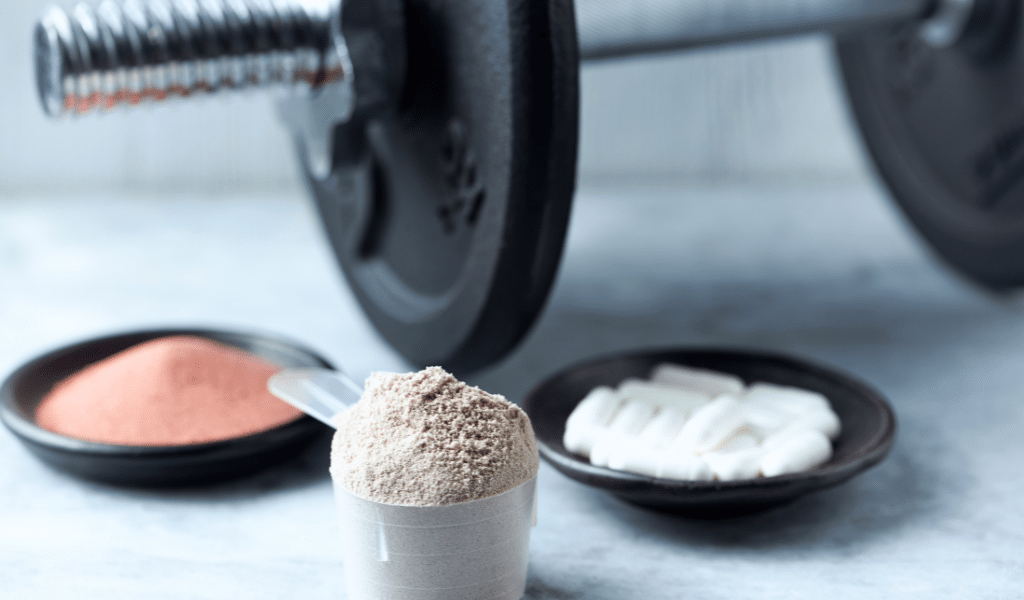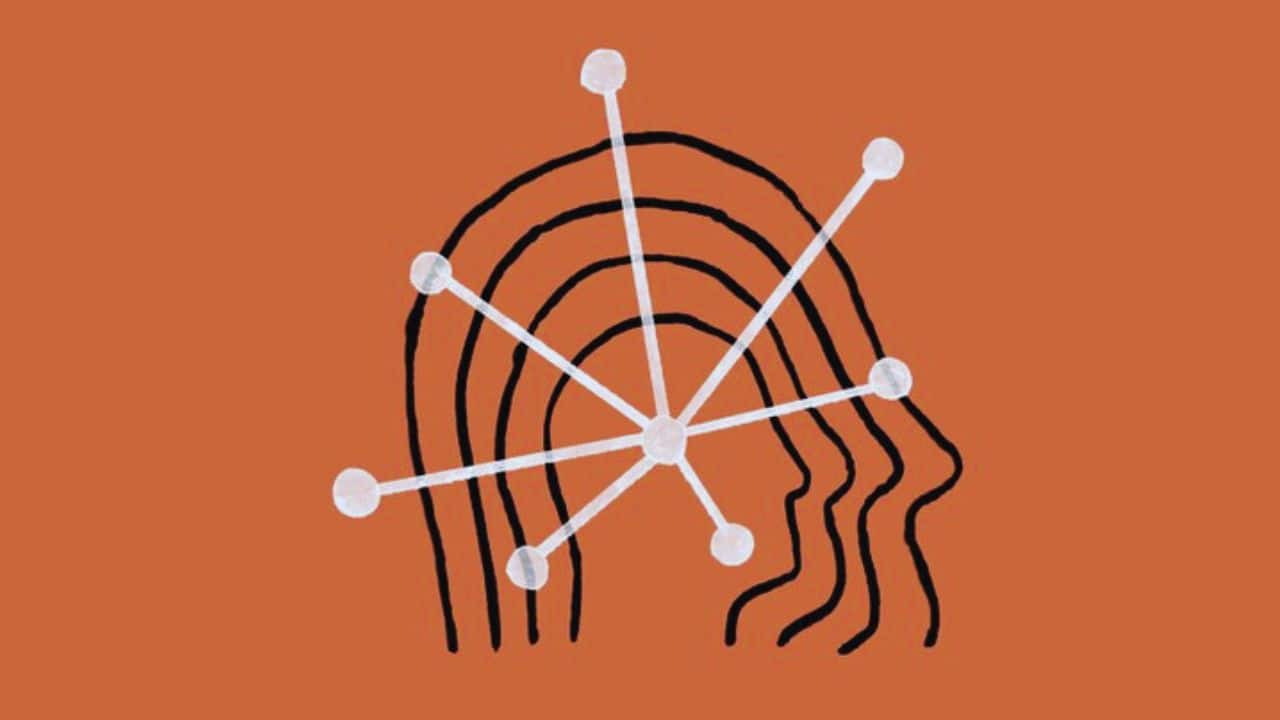Lately, your doctor has suggested creatine and you started to take it. But as a health-conscious person, it’s bothering you whether creatine is good or bad for you. To discover the answer to this question you’ll have to learn about the creatine pros and cons.
There are both pros and cons of taking creatine. It can fight muscle loss, improve brain function, increase endurance, and others. Again, it can be a reason for kidney disease, dehydration, hair loss, and others.
This is a vast topic and to explore it properly you’ll have to complete reading this article. So, why wait for more, let’s dive in
What Is Creatine?
Creatine is a natural amino acid that is produced in the liver and kidneys of our bodies. It plays an essential role in various tissues, primarily in muscle cells, but also in the brain, central nervous system, and heart. This small yet powerful amino acid can be easily converted into Phosphocreatine, which acts as a rapid source of energy for short bursts of intense activities lasting around 4-15 seconds. It is commonly used by athletes and individuals who engage in explosive movements like sprinting, powerlifting, and jumping.
While our bodies can naturally synthesize creatine, it can also be obtained from external sources such as dietary intake and supplements. The endogenous production of creatine means that it is not absolutely necessary to obtain it from your diet, so even if you follow a vegetarian or vegan lifestyle, you can still produce creatine within your body.
However, research suggests that taking creatine from exogenous sources, such as supplements, can increase the amount stored in muscles and other tissues. This leads to greater availability of creatine for immediate energy during high-intensity workouts.
For individuals following a diet that includes meat, their muscle creatine stores are typically about 60-80% full. By supplementing with creatine, it aims to increase muscle creatine levels by an additional 20-40%. Therefore, your dietary preferences can be a determining factor in considering whether or not to take a creatine supplement.
In addition to its benefits for athletes and those performing intense exercises, creatine is also showing promising therapeutic effects in conditions involving muscle wasting diseases, vascular disease, and brain health. As research continues to uncover the potential benefits of creatine supplementation, its use is expanding beyond the realm of high-intensity exercise to include a broader range of individuals.
Benefits of Creatine

Below I’ll discuss some common benefits of Creatine for the human body.
Benefits of Creatine for Athlets
First, let’s learn, how athletes get benefitted.
1. Increased Muscle Size and Strength
Taking a creatine supplement provides additional fuel to your muscles, allowing you to exercise harder and for longer durations. This extra energy has been shown to enhance muscle size, strength, power, and reduce muscle fatigue. Studies have demonstrated that creatine supplementation can lead to a 5-15% increase in strength, power, and sprint performance. It is particularly effective for high-intensity and repetitive sports and activities such as bodybuilding, combat sports, powerlifting, track and field events, soccer, football, hockey, and sprinting.
2. Fighting Muscle Loss in Older Adults
Creatine may help slow down sarcopenia, the age-related loss of muscle strength and function. This condition affects a significant portion of adults aged 60 and older and can lead to physical disability, reduced quality of life, and increased mortality. Research suggests that combining creatine supplementation with weightlifting exercises can benefit muscle health in older adults. Studies have shown that older adults who took creatine supplements while resistance training gained more lean muscle mass compared to those who only engaged in weight training.
3. Enhances Exercise and Sports Performance
A major motivation for incorporating creatine into one’s diet is its ability to improve performance during exercise and sports activities. Extensive scientific research supports the effectiveness of creatine in enhancing power-based sports and exercises, making it a popular choice among athletes and fitness enthusiasts for many years. If you participate in power-oriented activities, considering creatine supplementation may be beneficial in optimizing your performance.
4. Increased Endurance
While creatine is often associated with short-term, high-intensity activities, it can also benefit endurance performance. Research suggests that creatine supplementation may enhance endurance by improving the muscles’ ability to sustain high-intensity efforts over an extended period. This can be advantageous for endurance athletes participating in activities like long-distance running, cycling, or swimming.
5. Improved Anaerobic Performance
Creatine supplementation has been shown to enhance anaerobic performance, which involves short-duration, high-intensity activities without oxygen utilization. This includes activities like sprinting, jumping, and resistance training. By increasing the availability of energy-rich phosphocreatine in the muscles, creatine allows for greater power output and improved performance during anaerobic exercises. You can also check on the best C4 creatines.
Benefits of Creatine for Heart Patients
Now let’s learn about the benefits of creatine for heart patients.
1. Reduction of Inflammation
Creatine supplementation has been associated with potential benefits for heart health. Studies suggest that it may help improve vascular health by reducing inflammation and reactive oxygen species (ROS) that can be harmful to the heart and blood vessels. Furthermore, reducing overall inflammation can aid in post-workout recovery, promote better sleep, and support a stronger immune system.
2. Improved Cardiovascular Health
Improved exercise capacity: Creatine supplementation has been shown to improve exercise capacity in heart patients. It can enhance the availability of energy-rich compounds in the muscles, such as phosphocreatine, which can aid in high-intensity exercise performance. By increasing the capacity for intense physical activity, creatine may help heart patients engage in exercise programs and improve their overall cardiovascular health.
Benefits of Creatine for the Brain
Let’s see how creatine is useful foe brain.
1. Potential Neuroprotective Effects
Emerging research suggests that creatine may have neuroprotective effects, potentially benefiting brain health. It has been investigated for its potential to support cognitive function and protect against neurodegenerative diseases. While more research is needed in this area, preliminary findings show promise.
2, Potential Therapeutic Benefits
Research is uncovering potential therapeutic benefits of creatine supplementation for various conditions involving muscle wasting, weakness, and metabolic disturbances. If you are affected by any of these conditions, it may be worth discussing with your doctor the potential use of creatine as a dietary supplement to complement your treatment.
3. Improved Brain Function
Supplementing with creatine has been found to increase creatine levels in the brain, leading to potential improvements in brain functioning. This is believed to occur through enhanced oxygen delivery and energy supply to the brain.
Research indicates that taking creatine supplements for a short period may enhance short-term memory, intelligence, and reasoning abilities. However, while there have been suggestions that creatine may slow cognitive decline in neurodegenerative diseases like Parkinson’s and Huntington’s, studies in humans have not found conclusive evidence of such benefits
Bone Health
Emerging evidence suggests a potential role of creatine in promoting bone health. Studies have shown that creatine supplementation may increase bone mineral density and improve bone strength, potentially reducing the risk of osteoporosis and fractures. Further research is needed to fully understand the mechanisms involved, but this suggests a potential benefit of creatine for maintaining healthy bones.
Side Effects of Creatine

This time we’re going to talk about the side effects of taking Creatine. So, stay alert.
Side Effects of Creatine on Kidney Patients
Contrary to media reports, scientific research has not found any evidence to support the claim that creatine harms your kidneys. Numerous studies involving individuals of different ages have shown that taking creatine supplements does not have a negative impact on kidney health. These studies have used doses ranging from 5–40 grams per day for periods of 5 days to 5 years.
The misconception that creatine damages the kidneys likely stems from the fact that it can increase creatinine levels, which is a poor marker of kidney damage. Moreover, creatine supplementation has been deemed safe even for individuals following high-protein diets, which are often wrongly associated with kidney damage.
A study conducted on people with type 2 diabetes, a condition that can harm the kidneys, found that taking 5 grams of creatine daily for 12 weeks did not impair kidney function .
While creatine is generally safe, individuals with impaired kidney function or kidney disease should consult their healthcare provider before considering creatine supplementation due to limited research in this specific population.
Dehydration
Creatine can draw water from other parts of the body into the muscles, potentially leading to increased fluid requirements. Urinary tract infections, kidney stones, and even kidney failure can result from extended or recurrent periods of dehydration. So. it’s important to stay adequately hydrated when taking creatine to prevent dehydration, especially during intense exercise or in hot weather.
Side Effects of Creatine on Bloating Patients
The most commonly reported side effect of creatine supplementation is stomach discomfort accompanied by bloating. This sensation of bloating typically occurs during the initial phase of taking creatine, known as the loading phase. During this phase, a higher dose of creatine is consumed over a short period to saturate muscle stores. A common regimen involves taking 20–25 grams for 5–7 consecutive days.
The bloating is primarily caused by water being drawn into the muscle cells due to creatine’s effect. This can lead to temporary weight gain and subsequent bloating. It’s important to note that not everyone experiences this side effect.
To minimize the risk of bloating, it is recommended to keep the creatine dose per serving at 10 grams or less. Additionally, splitting the daily doses equally throughout the day can help avoid taking too much at once.
Creatine supplementation has also been associated with other stomach complaints, such as diarrhea and general upset. Similar to bloating, these symptoms can be reduced by limiting the creatine dose to 10 grams or less.
Creatine Side Effects on GI Patients
The amount of creatine you take can also play a role in potential side effects. Some individuals may experience gastrointestinal (GI) distress, bloating, or weight gain when taking creatine in large quantities. If you are aware of being prone to GI distress, it is advisable to skip the loading phase and start with the minimum recommended amount. It is important to listen to your body and gradually increase the dosage as you feel confident and comfortable.
Side Effects of Creatine on Hair Loss
One potential side effect that has been reported by some individuals is hair loss or increased hair shedding. However, it is important to note that the scientific evidence regarding the link between creatine supplementation and hair loss is limited and inconclusive.
While there have been anecdotal reports of hair-related issues associated with creatine use, there is currently no definitive scientific consensus on this matter. Hair loss can be influenced by various factors, including genetics, hormonal changes, stress, nutritional deficiencies, and other lifestyle factors. Therefore, it is challenging to attribute hair loss solely to creatine supplementation.
Side Effect of Creatine on Allergic Patients?
While rare, some individuals may have an allergic reaction to creatine or the other ingredients present in certain supplements. If you experience any signs of an allergic reaction, such as hives, rash, itching, swelling, or difficulty breathing, discontinue use and seek medical attention immediately.
Creatine Side Effect: Weight Gain
Creatine supplementation can cause an initial increase in body weight due to water retention within the muscles. This is a temporary effect and should not be confused with actual muscle mass gain. If you’re monitoring your weight, keep in mind that the initial increase is primarily water weight and not fat gain.
Is Creatine Safe for Teens?
The safety of creatine supplementation in teenagers is an important consideration. While short-term use of creatine has generally been deemed safe for adults, there is limited research available on the long-term safety and potential risks of creatine use specifically in teenagers. As a result, medical experts and organizations, such as the American Academy of Pediatrics, typically recommend that creatine supplementation be limited to athletes who are 18 years old or above.
The lack of extensive research on creatine use in teenagers makes it difficult to establish definitive guidelines regarding its safety and potential effects on growth, development, and overall health. Adolescence is a critical phase of growth and maturation, and introducing supplements like creatine during this period should be approached with caution.
It’s worth noting that the decision to use creatine in teenagers should involve careful consideration and consultation with healthcare professionals, such as pediatricians or sports medicine specialists. These healthcare providers can evaluate the individual’s specific circumstances, medical history, and overall health to provide personalized advice and guidance.
In the absence of comprehensive research on the long-term effects of creatine use in teenagers, it is prudent to prioritize other factors that contribute to overall health and athletic performance in this age group. These factors may include maintaining a balanced and nutritious diet, getting adequate rest and sleep, engaging in regular physical activity, and receiving proper guidance and training from qualified professionals.
Creatine Pros And Cons: How to Take Creatine?
Creatine supplements are typically available in powder form, which can be mixed with water or juice for consumption. The timing of when you take it is not crucial.
There are two common dosing regimens for creatine:
Creatine Loading
This involves taking 20–25 grams of creatine split into 4–5 equal doses over a period of 5–7 days. After completing the loading phase, a maintenance dose of 3–5 grams per day is taken to sustain the muscle stores of creatine.
Maintenance Dose
Alternatively, you can skip the loading phase and start with a daily maintenance dose of 3–5 grams.
Both options are equally effective, but following the loading protocol allows you to experience the benefits of the supplement more rapidly.
Among the various types of creatine available, creatine monohydrate is considered the best option. Other types, such as buffered creatine, creatine hydrochloride, and creatine nitrate, are also present in the market. However, creatine monohydrate is the most extensively studied and proven to be the most effective form of this supplement.
Timing
To maximize the benefits of creatine supplementation, it is recommended to take it with carbohydrates or a combination of carbohydrates and protein. When creatine is consumed alongside carbs or a mix of carbs and protein, it enhances the retention of creatine in the body compared to taking creatine alone. You can choose to take your creatine supplement with a meal or add it to a smoothie for optimal results. Additionally, you can also read – Should I take creatine before bed
Is Creatine Worth Taking?
Considering the numerous benefits of creatine monohydrate and the lack of significant proven drawbacks that could negatively impact your health, it is reasonable to conclude that supplementing with creatine can enhance exercise performance, promote lean body mass, and be particularly beneficial for resistance training.
If you are determined to experience the advantages and build muscle, you may explore our creatine supplement available at Care/of. Our creatine supplements come in convenient single-serve packets, pre-dosed for easy usage, providing added convenience and simplicity.
Which Form of Creatine is the Best?
Supported by extensive research and numerous peer-reviewed journals, creatine has been scientifically proven to enhance strength and muscle mass by boosting power and force production through the stimulation of Adenosine Triphosphate (ATP), the body’s natural energy source for intracellular energy transfer.
Despite the wealth of clinical evidence, it is important to note that creatine monohydrate may have some drawbacks such as bloating, anecdotal reports of cramping, water retention, and limited bioavailability.
In response to these potential side effects, alternative forms of creatine have been developed to address these concerns and provide a more potent dose of creatine while improving performance outcomes. That’s why, at Swolverine, we proudly offer Kre-Alkalyn as an advanced creatine supplement that aims to overcome these limitations and deliver superior results.
Frequently Asked Questions (FAQs)
Now let’s get about some common queries about this topic.
Can I take 10g of creatine a day?
For the majority of individuals, a daily maintenance dose of 3-5g of creatine is typically recommended. Taking 10g of creatine per day may increase the risk of experiencing side effects such as bloating and stomach discomfort. However, it is worth noting that during a loading phase, which is a temporary period, some individuals may opt for a higher daily intake of 20g.
Can I take creatine forever?
When taken orally at recommended doses, it is generally considered safe to use creatine for up to five years. However, as with any dietary supplement, it is crucial to select a product that adheres to recommended manufacturing practices and undergoes third-party testing to ensure its quality and purity.
Does creatine increase testosterone levels?
The relationship between creatine supplementation and testosterone levels has been extensively studied. The majority of research indicates that creatine does not significantly impact testosterone levels. While creatine has been shown to enhance exercise performance, it is important to note that it does not exert a direct effect on testosterone production.
How much creatine is safe for the kidneys?
When it comes to the safety of creatine for kidney health, research suggests that creatine doses of up to 10g per day are generally considered safe for individuals with healthy kidneys.
Is creatine a steroid
No, creatine is not a steroid. Creatine is a naturally occurring compound found in small amounts in certain foods and produced by the body. It plays a crucial role in energy metabolism, particularly in providing energy for short-duration, high-intensity activities such as weightlifting and sprinting.
Wrap Up
That was everything about creatine pros and cons.
We’ve seen Creatine is both safe and effective. Scientific research strongly supports the use of creatine to enhance sports performance, increase lean body mass, and improve overall muscle health. It also plays a role in ATP production and can even support healthy brain function.
However, we’ve also noticed too much or an overdose of creatine can have a negative impact on us. So, consume according to dosage.






































